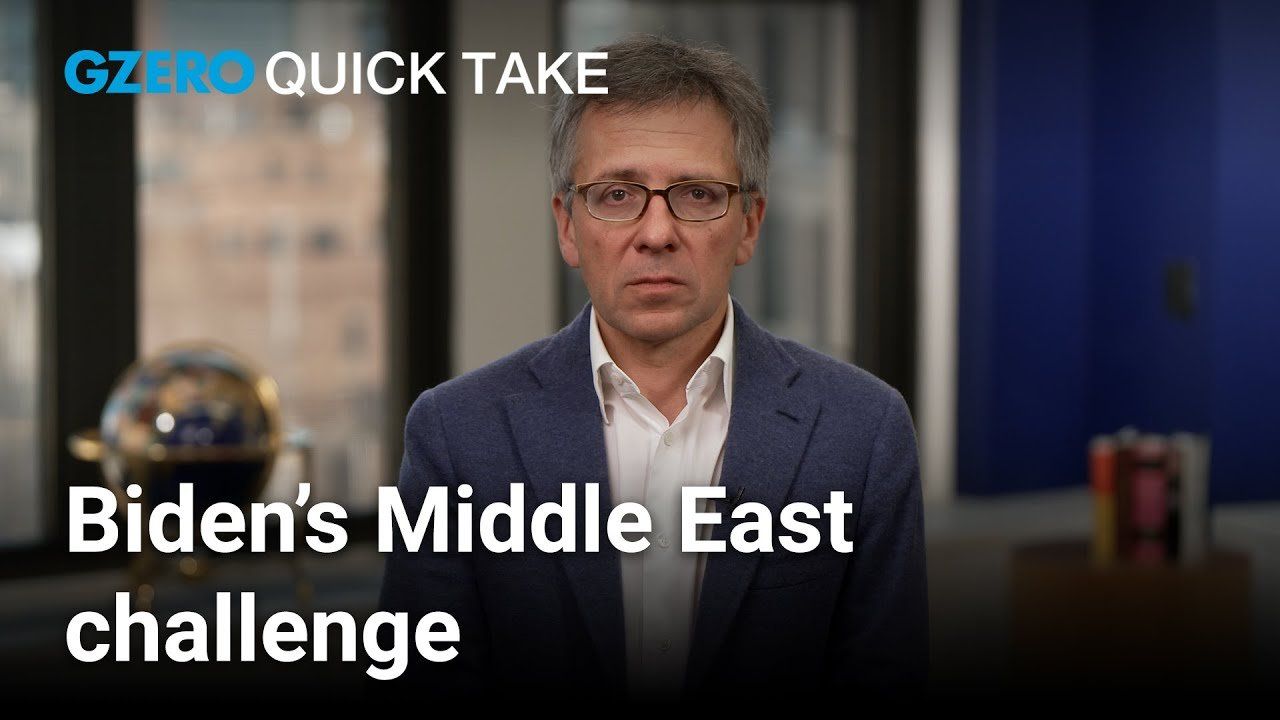
Ian Bremmer's Quick Take: Hi, everybody. Ian Bremmer here and a Quick Take to kick off your week. We are still very much focused on the Middle East. That is the top priority. Tony Blinken, Secretary of State, for his fifth trip to the Gulf since October 7th, those horrible terrorist attacks, Ukraine very far down the priority list compared to the engagement the Middle East is presently getting. It certainly feels that way. But that's what we're focusing on.
And the big issue is the American military response to that nightmare scenario that came to pass when US servicemen and women, dozens injured, three killed in Iranian proxy attacks on the Jordan-Syria border. The United States had to respond militarily, did respond militarily, but they also did not want to precipitate an Iranian war with the United States. So they tried to have their way on both sides of the equation and probably end up getting nothing that they want. What do I mean by that? Well, the United States did attack direct Iranian military assets, Islamic Revolutionary Guard Corps military capabilities on the ground in Syria and Iraq, but also telegraphed that very clearly, very publicly, for about five days before they started the attacks, which meant that proxy leaders and most importantly, Iranian leaders were able to get out of Dodge and potentially protect the most sensitive equipment information from those US strikes.
That meant that the Americans got to show that they would take significant military action, but also did not precipitate an Iranian military response. We aren't going to see war right now between the US and Iran, but we also aren't going to see deterrence by the Iranian proxies or by the Iranians in continuing to engage in strikes in civilian tanker traffic through the Red Sea or against Americans on the ground in the region.
Now, if it doesn't resolve any of that conflict that continues to get worse, what does it resolve? Well, it continues to give the Americans a little bit of time, maybe to get a temporary cease-fire in Gaza. That's really where the effort is right now, particularly being engaged with Qatar in coordinating with the Israelis and with Hamas. The hope is that in the next week or two, you get a month of committed cease-fire from the Israelis and you get large numbers of remaining hostages being held by Hamas released to Israel.
Now, Prime Minister Netanyahu and the war cabinet are nowhere close to succeeding in their war on the ground against Hamas. And that means they have months minimum before they're willing to think about wrapping up that conflict, irrespective of all the international pressure. So what does a month accomplish? While the hope is that a month accomplishes movement towards a Saudi-Israel peace deal where the Americans would proactively recognize a Palestinian state together with the UK and others. The Israeli war cabinet would outline the potential for such a political recognition while security would be provided by somebody else. Don't have to have your own security forces to have your own state, and nobody says that's a requirement. Would it be provided by the Israelis? Well, that wouldn't be acceptable, though. They could have a buffer zone perhaps, would need to be worked out with the Gulf allies, with Egypt, with Jordan. Can that be done in a month? In terms of sticking the landing, that's about the highest degree of difficulty you'd see in gymnastics. And certainly I would take the under in terms of expectations of a peace deal here.
But does Biden feel like he has any better alternatives at this point? And the answer to that is no. Meanwhile, he's being squeezed by the Republicans at home who are pushing for more aid for Israel, not linked to anything. And he's getting squeezed by the progressives that are his own Democratic supporters that are more aligned towards the Palestinians than they are Israel. This is feeling like a no win situation for Biden. And so if he can get a cease-fire and get a few weeks, engage diplomatically, see what shakes loose. Still at the end of the day, there are far more actors around this war, both in Gaza and also more broadly in the Middle East, that are interested in finding ways not to have a lasting cease fire than to see a peace agreement work out. That's true certainly for Hamas. It's true certainly for Netanyahu. It's also true for the Iranian government and the so-called axis of resistance.
And for all of those reasons, I fear that we are still heading for further escalation as opposed to a window that would end this war. Really tough for Biden in an election year, really tough for those in the Middle East living with this at any time.
That's it for me. I'll talk to you all real soon.